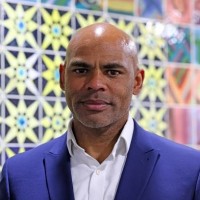 A city’s mayor has denied local democracy reporters are banned from his regular briefings – claiming instead they are simply “not invited”.
A city’s mayor has denied local democracy reporters are banned from his regular briefings – claiming instead they are simply “not invited”.
Mayor of Bristol Marvin Rees has spoken out about the decision to bar Bristol Post local democracy reporters Alex Seabrook and Adam Postans from his fortnightly press conferences, which has prompted media outlets across the city to boycott them.
In defending the decision, Mr Rees compared the briefings to a birthday party to which uninvited people are not strictly “banned”.
He also took aim at the BBC-funded LDR scheme, claiming that news organisations should fund journalists from their own budgets rather than the public purse.
According to the Post, Mr Rees said: “The whole press conferences were set up by me. There had never been a practice like that in the council of setting up press conferences on a regular basis to give the city’s journalists easy access.
“Every press conference I say ‘you can ask me anything you want, anything’. Often at the end of the press conference, when the journalists run out of questions, I say ‘do you have any more’ so everyone gets a chance.
“Nobody’s been banned. I didn’t invite you to my birthday party, but I didn’t ban you from it. It’s up to me.
“It’s not statutory, I’m not required to do it, we do it to give journalists easy access to me to ask whatever they want, and we can invite whoever we want.”
“In the world of public commentary, words matter and create images and meaning.
“Nobody is banned – but they’re not invited. I can invite anyone to interview me I want, that doesn’t mean I need to invite everyone.”
Taking aim at the LDR service itself, he added: “The local democracy reporters are publicly funded. A private corporation doesn’t employ enough people, and so subsidises its staff with publicly-funded journalists, which is why the National Union of Journalists was opposed to it in the first instance.
“We don’t think that’s appropriate. Every news organisation in the city should properly staff itself at its own cost, not out of the public purse. There are other questions about impartiality and competence, but that’s for another occasion.”
The row began last month after a public relations boss at Bristol City Council challenged Alex’s right to ask a question of the mayor during a recent conference.
After Alex quizzed Mr Rees over his decision to fly 9,000 miles to Canada and back to give a talk on climate change, the council’s head of external comms Saskia Konynenburg described the question as something “a journalist from a newspaper”, rather than an LDR, should ask.
The council defended its actions and claimed the Post breached a “long-standing agreement” that it would not send either Alex or Adam to cover the Labour mayor’s remotely-held conferences, while the newspaper said it has always “reserved the right” to have LDRs cover the briefings.
The Post, Bauer Media, the BBC, Bristol 24/7, the Bristol Cable, Bristol World and ITV West Country have since announced they will boycott the briefings until Alex and Adam’s right to attend is confirmed.
Post editor Pete Gavan said: “The LDR service has been a huge success since it was launched in 2017 and helps us and partners shine a light on what’s happening across the city.
“Covering the mayor is entirely within the remit, and we hope to find a resolution that sees the LDRs welcome again.”





 Follow HTFP on Twitter
Follow HTFP on Twitter